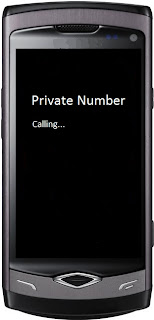Indian Telecom company BSNL launches three tablets designed by Pantel Technologies which are going to provide healthy competition to datawind’s Aakash and Ubislate 7+. These tablets have better configuration than Aakash and Ubislate 7+ and are in three different price ranges.
These three tablets are
Penta TPAD IS701R
Penta TPAD WS704C
Penta TPAD WS804C
The cheapest of them is Penta TPAD IS701R which has price of 3250 Rupees and it will give tough competition to Aakash and Ubislate 7+.
Penta TPAD IS701R
Price: 3,250 Rupees.
Penta TPAD IS701R doesn’t has SIM card slot but it can be connected to internet via 2G or 3G USB modem. It has Wi-fi connectivity and Android 2.3 (Ginger Bread) operating system.
Talking about its internal configuration, it has 1GHz (ARM11 IMAP210) Processor along with 256 MB DDR2 RAM which is faster than Aakash and Ubislate 7+.
It has 7 inch resistive touch screen which has 800 x 6oo resolution.
It has HDMI port via which it can be connected to an HDTV. It has a gravity sensor (G Sensor) which enables applications like motion gaming and etc.
It has battery of rating 3000mAH.
Internal memory of 2 GB which can be extended upto 32 GB.
It also has a 0.3MP (Digital or VGA) front facing camera.
Image of Penta TPAD IS701R is shown below
Penta TPAD WS704C
Price: 10,999 Rupees.
Penta TPAD WS704C has sim card slot and Android 2.3 (Ginger Bread) operating system.
It has 1GHz (ARM11 IMAP210) Processor along with 512 MB DDR3 RAM which provides good multitasking.
It has 7 inch capacitive touch screen which has resolution of 800 x 600. It is multi touch enabled.
It has a USB and a HDMI port.
It has battery rating of 4000mAH.
It has Internal memory of 4 GB which can be expanded later.
It has 3.5 mm audio jack and 0.3 MP front camera along with 2 MP rear camera.
It has other stuffs like Wi-Fi, Bluetooth, GPS and G-sensor.
Image of Penta TPAD WS704C is shown below
Penta TPAD WS804C
Price: 13,500 Rupees.
Penta TPAD WS804C has sim card slot.
It has ARMv7 1.2GHz processor based on Cortex-A8 architecture which is better than the previous one. It has 512 MB DDR3 ram.
It has 8 inch capacitive touch screen which has resolution of 800 x 600.
It has a USB and a HDMI port.
It has Internal memory of 4 GB which can be expanded later.
It has 2MP camera at the back of it along with 0.3 MP front camera.
It also has stuffs like 3.5mm audio jack, Wi-Fi, Bluetooth, GPS and G sensor.
Image of Penta TPAD WS804C is shown below.
Comparison Of BSNL Tablets














































